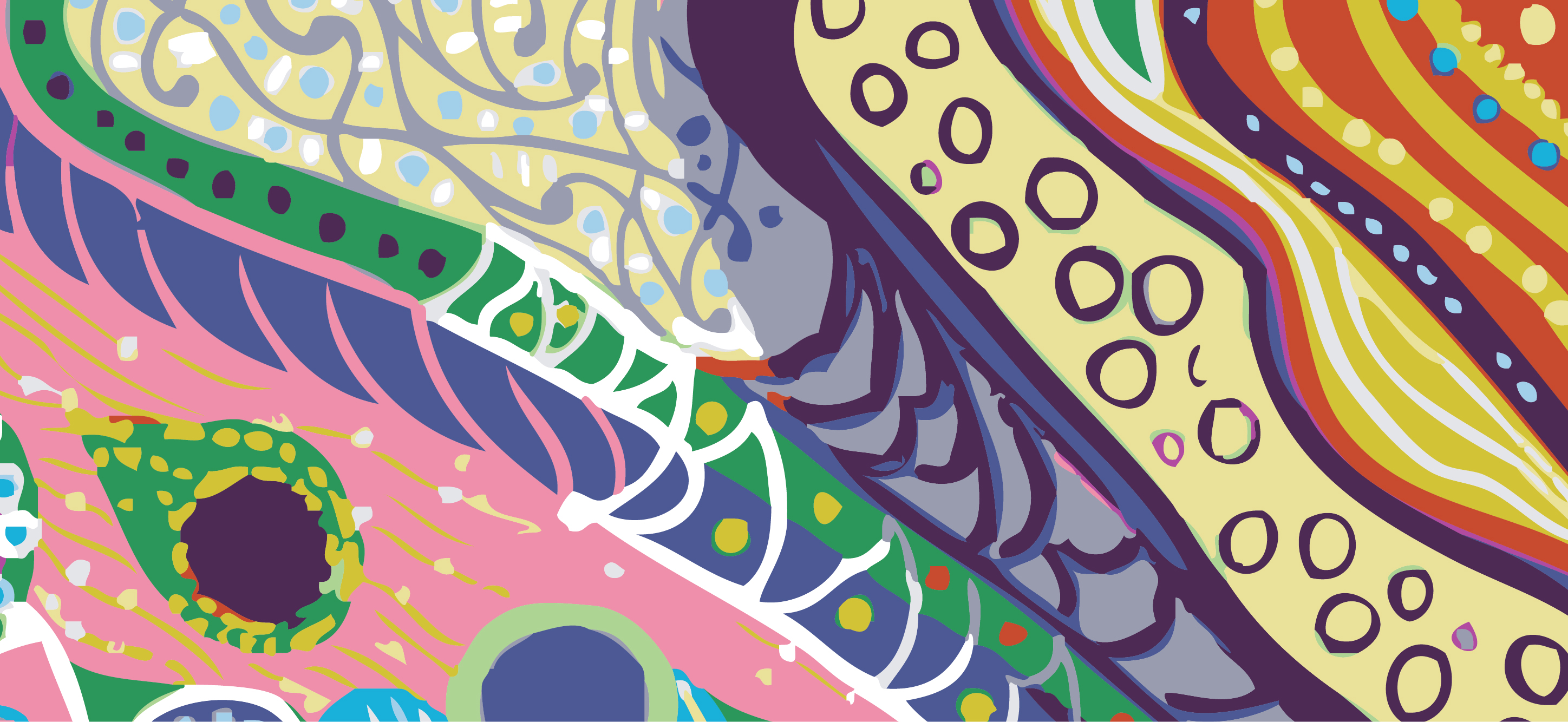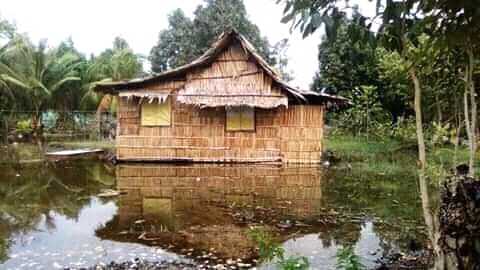The Pacific is known to be one of the regions that is very vulnerable to climate change and climate-induced natural disasters. Today almost all the Pacific nations are battling the worst effects of climate change and COVID-19 in their communities. Many islands are finding it very tough to cope with the increasing impacts of climate change and unexpected outbreaks of coronavirus in their communities, as health facilities and equipment are in short supply. Death rates are increasing every day and families have very limited resources to support their children in their homes.

Osi Lake, Auki Malaita
In the midst of this pandemic, the recent Tropical Cyclone Dovi and a volcanic eruption hit the region in the beginning of 2022, causing massive flooding and landslides, and uprooting vegetation, homes and communities. This has left destruction and debris, depriving survivors of basic needs like food and clean water. This is the reality that women, young girls and children are dealing with in the Pacific communities.
In March 2022, the Intergovernmental Panel on Climate Change (IPCC) Working Group II (WGII) released a report on impacts, adaptation and vulnerability. This report has shown that women are at the very forefront of climate change and it will disproportionately affect the health, safety and well-being of women, young girls and children of the Pacific and all of the Global South. As described in the IPCC scenarios, climate change will have massive impacts on food security and fresh water supply, and urban and rural settlements will face a huge scarcity of resources for the population. Pacific women, many of whom are known to be the breadwinners for their families, will be the most affected. What can be done for the Pacific islands and how will this affect the livelihoods and vulnerability of women, young girls and children?
Clera Gore Rikimani, a local climate change researcher and senior programmes manager of Save the Children Solomon Islands, says, “In Solomon Islands many women are really affected by the climate crisis and COVID-19 in trying to provide their families with all the basic needs every day. There are some communities that are still not being supported by the government’s humanitarian aid. Some communities in the outskirts of Honiara still have a large unvaccinated population, and the majority of them are women. This has made it difficult for them to travel into town to sell their local produce.
“Even though these crises were both happening at once, many women have turned out to be very creative and innovative in terms of their marketing strategy to support their families and serve the communities in these struggling times. Many women have used online platforms to sell their local products and offer delivery services to customers by adhering to the COVID-19 safety protocols that were put in place. This shows how resilient women are in critical situations.”
Mary Alalo is the project coordinator for the Third National Communications (TNC) report and the First Biennial Update Report (FBUR), a project implemented by the Climate Change Division of the Ministry of Environment, Climate Change, Disaster Management and Meteorology, Solomon Islands. She observes, “Women in highly vulnerable communities have adapted by practising food preservation methods, crop diversification and planting crops that are more drought-, flood- and saltwater-tolerant, and women as house managers have done well by ensuring their families have food and water to drink and that their children are kept safe from COVID-19.
“Climate crisis and COVID-19 are making it more difficult for women, girls and children to access quality healthcare, quality schooling, clean water and sanitation, and income-generating opportunities. Their capacity to improve their livelihoods has been limited.” But Mary is encouraged by Pacific women’s excellent adaptive capacity, living in a part of the world that is highly susceptible to climate change, disaster risks and natural hazards.
In all these frequent disasters that have occurred, various studies have proved that women and girls in every society were the ones who have been effectively responding in times of crisis and actively working towards the creation of a more just and sustainable world.
Agnetha Vave-Karamui, the chief conservation officer and focal point for the Protected Areas & Coral Triangle Initiative in Solomon Islands, gives a few examples of the adaptation measures that Pacific women are engaging in: rotating food crops, seeking new areas for gardens, planting new crops that are more suitable to changing weather, diversifying crops in their food gardens and engaging in multiple income-generating activities. All these adaptive measures have suited their context by providing assistance and mobilising community support to leaders and community members to maintain calm in emergency situations.
The national coordinator of the Australia Pacific Climate Alumni Network (APCAN), Gaylyn Puairana, echoes a fundamental sentiment that there is no climate justice without gender equality. She emphasises that women need to be given platforms to demonstrate their ideas of how they can bring about change in their communities.
It is important to ensure that there are spaces and resources for Pacific women to participate in climate change decision making and climate action at all levels. Climate justice is not possible without women’s equal participation and involvement, and gender-responsive frameworks must be urgently integrated into policies to address climate change.
As Mary notes, “Climate change is not a new concept – we have been living and breathing its impacts on our lives through the rising seas that brought in the high tides, through the heavy rains that affected our gardens, through the droughts that dried up our water sources, through the severe cyclones that damaged our houses, trees and livelihoods.” In order to move forward there must be a strong recognition of gender and climate change in the Pacific, as many Pacific women are at the frontline of being affected by the rising climate change impacts.
Belyndar Maonia Rikimani is a climate activist and a One Young World Ambassador from Solomon Islands, a final-year law student at the University of the South Pacific, and vice-president of the Pacific Islands Students Fighting Climate Change (PISFCC).


